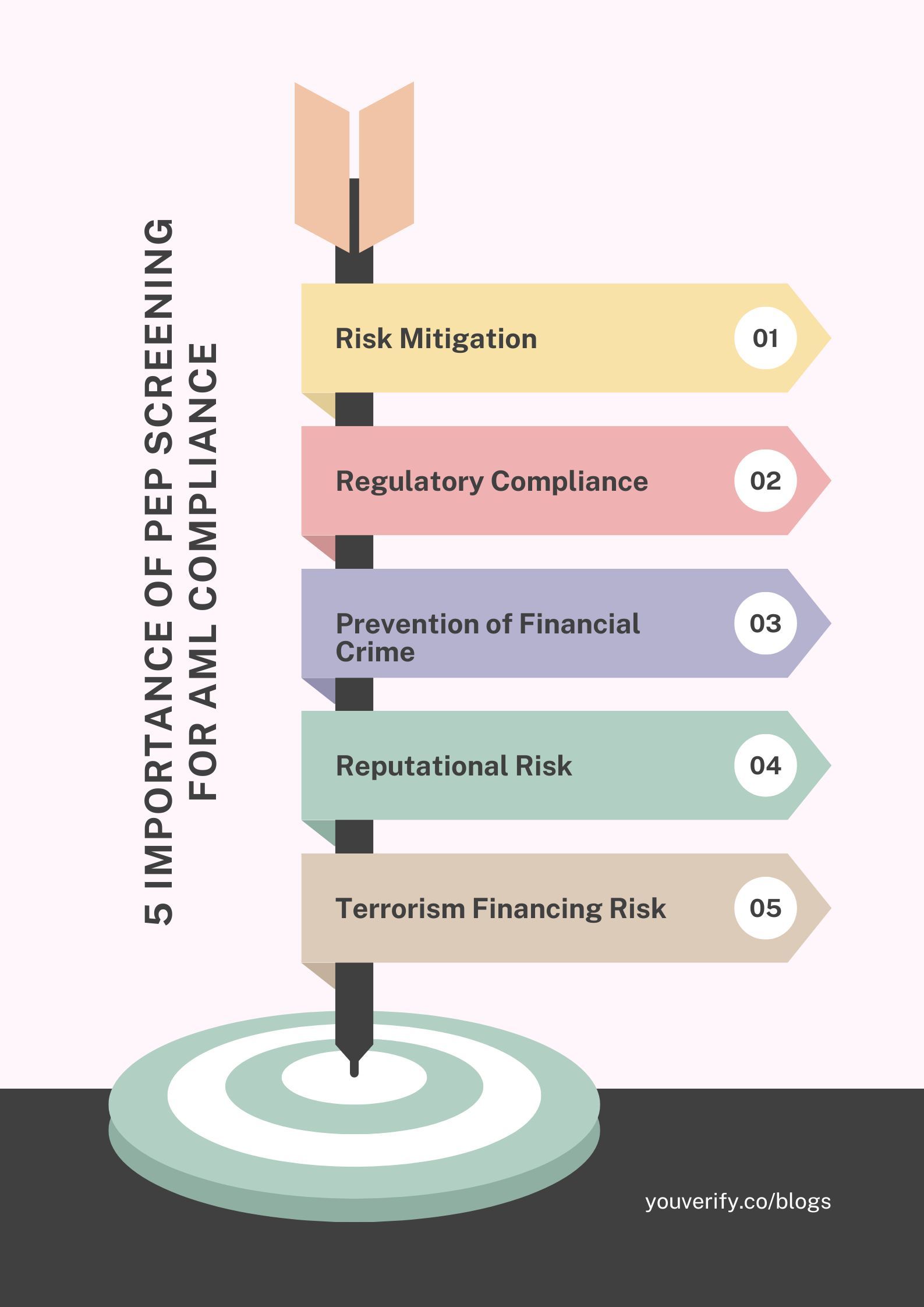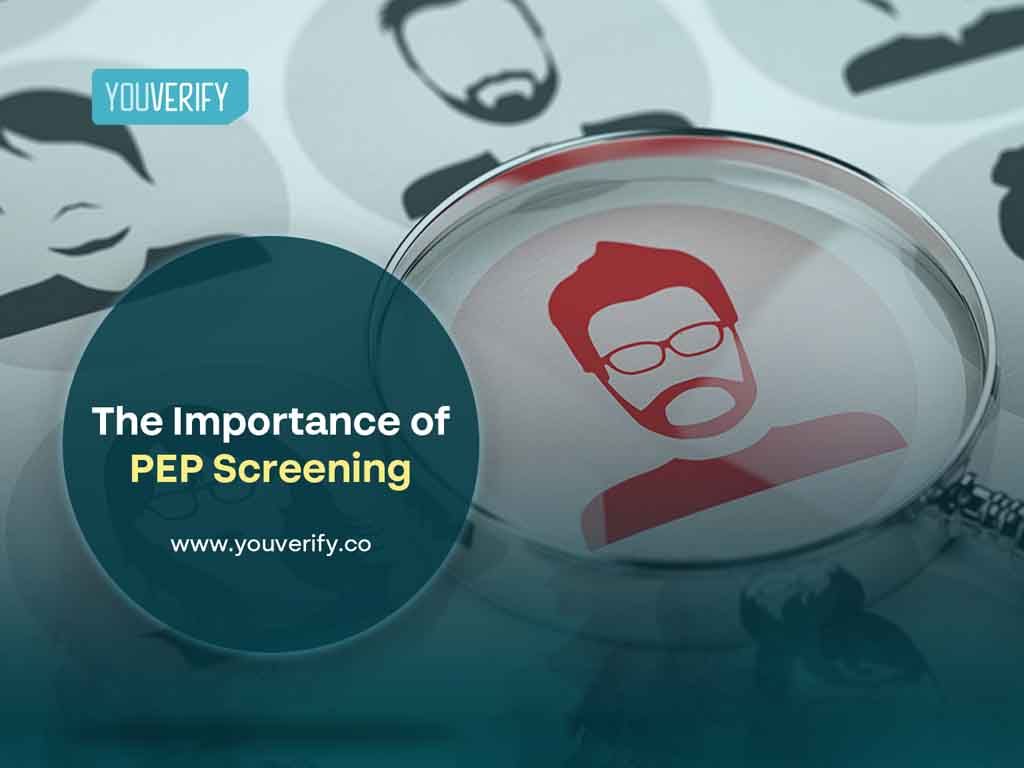Several high-profile cases of non-compliance with a political exposed person (PEP) screening process in the last few years have shown how important PEP screening is for anti-money laundering (AML) compliance to financial institutions and businesses.
In March 2012, the Royal Bank of Scotland was fined a sum of $10.9 million for not screening certain customers who were classified as Politically Exposed Persons. The bank's systemic failures over three years to adequately handle clients vulnerable to corruption due to their political connections resulted in breaches of anti-money laundering regulations, which are an important component of AML and KYC compliance.
In 2019, Standard Chartered Bank was fined $1.1 billion by the US and UK authorities for not conducting proper due diligence and PEP screening on transactions for their high-risk PEP customers. Also, in 2018, ING Bank was slapped with a sum of €775 million for an investigation into its failure to conduct PEP screening and prevent money laundering.
These, among other notable AML compliance fines tell us why PEP screening is important for a robust AML compliance program. This article discusses what PEP Screening is and why it is important for anti-money laundering compliance.
PEP Screening Meaning: What is PEP Screening for AML Compliance?
PEP screening means identifying individuals in high public positions, usually government positions, and their close associates, families, and friends.
Because of the position of power and influence they occupy, PEPs are at a higher risk of committing financial crimes such as money laundering, bribery, terrorism financing, and corruption.
Hence, they need to be screened by businesses or financial institutions to ensure a clean financial system.
How does PEP Screening Work?
PEP screening begins with collecting and verifying the information of a prospective client against the PEP list or database of a country (domestic PEP list) or an international PEP database.
Many times, it is usually difficult to verify PEPs against the large amount of data contained in the PEP list. Also, many politically exposed persons may have similar aliases, names, and spellings, however, advanced algorithms, PEP screening tools, and data-matching techniques can be used to accurately detect potential matches.
When a potential PEP is identified, enhanced due diligence is carried out on the PEP. The process of enhanced due diligence is the extra KYC process taken by banks for a greater level of scrutiny of customers and potential clients to highlight risks that cannot be captured by Customer Due Diligence (CDD).
In simpler terms, EDD takes a step forward from CDD to establish a high level of identity and compliance assurance by obtaining the customer data (identity, address, income source, etc.) and evaluating the risk potential of the customer.
Learn more about politically exposed persons’ examples and the challenges that come with dealing with PEP screening for AML compliance.
Why is PEP Screening Important for AML Compliance?

PEP screening is important for compliance with AML and KYC regulations. Here are 5 important PEP screening checks for AML compliance:
1. Risk Mitigation:
Politically exposed persons have a higher risk of involvement in financial crime; hence, businesses and financial institutions that are considering doing business with them are faced with reputational risk. It is therefore important for them to carry out PEP screening for AML compliance.
A risk-based approach to AML compliance is a great way to approach PEP screening. This involves setting aside resources and implementing controls based on the risk level of customers. A risk-based approach to PEP screening allows an organization to identify and address risks before they occur.
2. Regulatory Compliance:
Countries and jurisdictions have different strict regulations for PEP screening AML rules. Failure to comply with PEP screening regulations can result in hefty fines and reputational damage. PEP screening for AML compliance works to ensure financial institutions stay ahead of these measures and do not engage in prohibited transactions with sanctioned PEPs.
3. Prevention of Financial Crimes
The primary objective of PEP screening is to prevent the financial system from being exploited for money laundering, corruption, and other criminal activities. By diligently identifying and monitoring politically exposed persons, businesses can proactively detect and report suspicious transactions, aiding law enforcement in their fight against financial crime.
4. Reputational Risk
Conducting business with PEPs implicated in corruption or other financial crimes can severely damage a company's reputation.
By identifying high-risk individuals, PEP screening empowers businesses to make informed decisions about establishing or maintaining business relationships, mitigating the risk of association with illicit activities.
The repercussions of a PEP-related scandal can be devastating, leading to irreparable harm to a company's brand, loss of customer trust, and substantial financial losses.
5. Terrorism Financing Risk
PEPs can inadvertently or intentionally contribute to terrorism financing through their networks. To mitigate this risk, robust compliance measures are essential to detect and prevent such activities, safeguarding the financial system's integrity.
Related: Why PEP Screening is Important for KYC and AML Compliance
PEP and Sanction Screening Checks with Youverify
Youverify builds simple real-time PEP and sanction screening solutions for AML compliance. This solution matches customers with constantly updated global databases and domestic PEP lists to protect businesses and help them comply with AML regulatory requirements.
With Youverify’s PEP screening solution, businesses and financial institutions can plug into over 3000 data sources globally to run checks across all government-approved and backed PEP and sanction lists worldwide and across several jurisdictions.
Moreso, if you have a business in Nigeria, you can now access a FREE domestic PEP list check in Nigeria. The process of getting your customer checked through the global PEP database can be as seamless as possible. Request a FREE DEMO with our AML compliance expert to see how it works.
FAQs on PEP and Sanction Screening
1. What is the difference between PEP Screening and Sanction Screening?
The key difference between PEP and sanction screening is in their target, risk focus, and databases. PEP screening targets politically exposed persons, while sanction screening targets individuals and entities on the sanction list.
PEP screening focuses on risks relating to bribery, corruption, and money laundering, while sanction screening focuses on terrorism financing, proliferation of weapons, and human rights abuse.
PEP databases are maintained by various administrations, while the sanction list is issued by government and international organizations.
2. Is PEP Screening the same as sanction screening?
PEP screening is not the same as sanction screening. While PEP and sanction screening are components of anti-money laundering (AML) compliance and Know-Your-Customer (KYC) compliance, they both serve different purposes.
3. What are PEP and Sanction Screening?
PEP screening is the process of identifying politically exposed persons and verifying them against the domestic PEP list or the foreign PEP list also known as the world PEP list.
Sanction screening is the process of identifying whether individuals have been listed on the sanction list or imposed by government bodies. This ensures compliance with KYC and AML rules and regulations.
4. What is PEP in KYC?
PEP stands for Politically Exposed Person in the context of Know Your Customer (KYC) and Anti-Money Laundering (AML) regulations. A PEP is an individual who holds or has held a prominent public function, such as a head of state, senior politician, or senior executive of a state-owned enterprise.
5. What are the PEP Screening Requirements?
General PEP screening requirements include a risk-based approach, identification and verification of PEPs, ongoing monitoring of PEPs, Enhanced Due Diligence (EDD), documentation, and reporting to relevant authorities.
